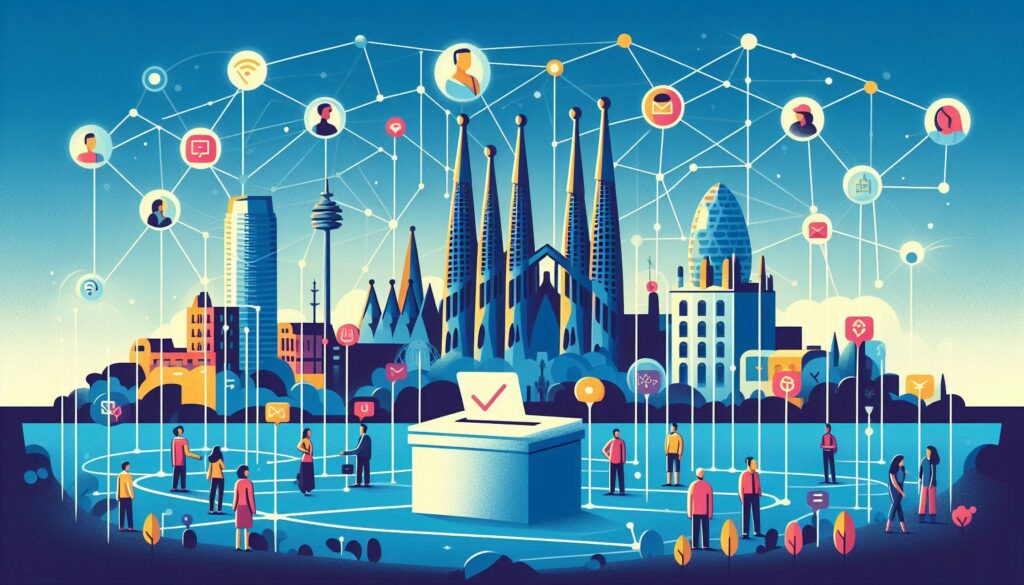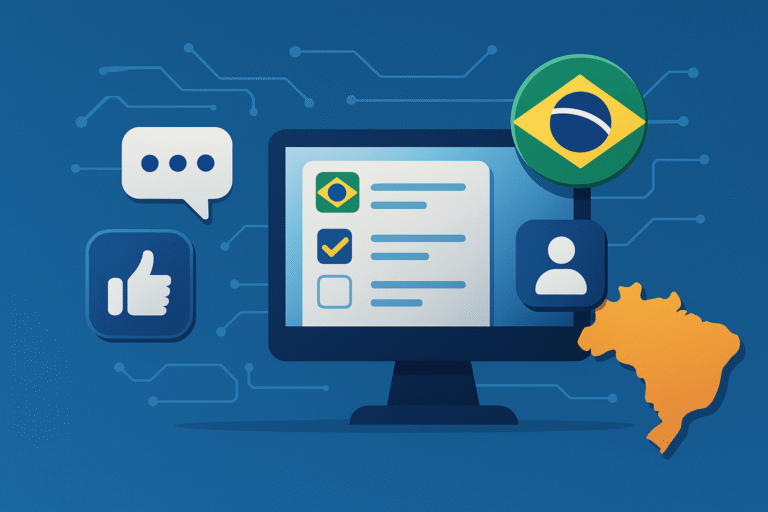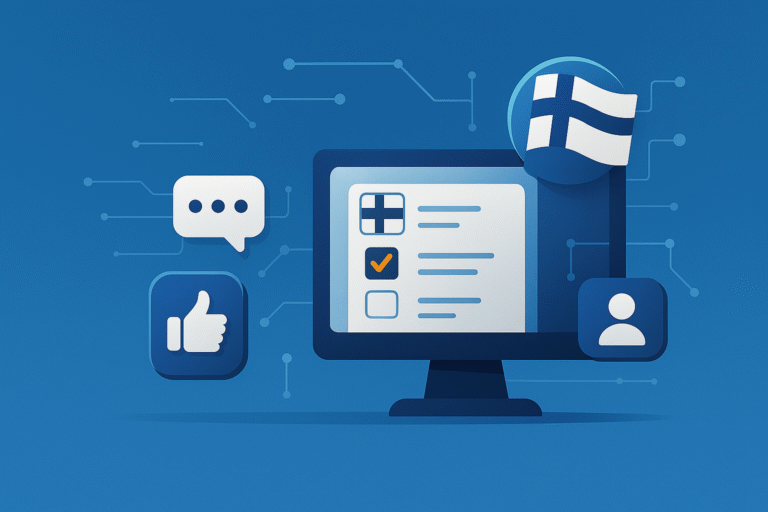
How Barcelona Built a Model of Digital Democracy
Introduction
Over the past decade, Barcelona has become one of the world’s most influential laboratories for digital democracy. The Catalan capital has combined civic participation, open technology, and political commitment to make institutions more transparent and inclusive. Through open-source platforms, digital-first processes, and new forms of public deliberation, Barcelona has shaped a model that many European cities study and adapt.
👉 For the broader context of concepts and benefits, see What is digital democracy and why it matters today.
1) Origins: political vision and civic tech
Barcelona’s most recent cycle of digital participation accelerated around 2015, when the city committed to three priorities: more participatory decision-making, stronger transparency, and innovation grounded in open source software. The most visible outcome is Decidim (“We decide”), a modular participation platform designed for consultations, proposals, petitions, participatory budgeting, and policy monitoring.
From day one, Decidim embraced open governance: public code, an international contributor community, and an ethical framework around digital rights, data stewardship, and process traceability. The strategic choice—treating technology as a public good—allowed the platform to grow beyond Barcelona and become a reference for cities worldwide.
2) What Decidim is and how it works
Decidim is not just a website; it is an ecosystem. Key features include:
- Proposals from residents with comments, endorsements, and attachments;
- Deliberative processes (consultations, strategic plans, regulation updates) structured into phases;
- Participatory budgeting with project sheets, cost estimates, and public voting;
- Calendar of online/offline assemblies and accountability dashboards tracking implementation;
- APIs and modules to integrate municipal services or external tools.
For a broader overview of tools and selection criteria, read our Beginner’s guide to using online participatory platforms.
3) Principles: transparency, inclusion, accountability
The Barcelona model rests on a few core principles:
- Transparency – Processes, decisions, and results are public and auditable. Residents can follow how a proposal evolves and who is responsible in each phase.
- Inclusion – Accessibility-first design, plain language, multilingual modules; hybrid participation that blends digital tools with in-person neighborhood meetings.
- Accountability – Mandatory reporting on the status of commitments via dashboards and follow-up pages.
- Open source – Reusable, verifiable code reduces vendor lock-in and increases public trust.
If you want a practical path to launch or contribute a proposal in your community, see How to create a participatory proposal step by step.
4) Results: scale, impact, and learning
Since launch, Barcelona has run hundreds of participatory processes: urban planning, mobility, environmental policy, social services, and more. Thousands of proposals have been discussed, amended, and voted on, with visible effects on local policies. A flagship example is the review of the city’s urban plan, where residents contributed both online and in neighborhood assemblies to suggest alternatives and set priorities.
In consecutive rounds of participatory budgeting, projects were selected through public voting with dedicated envelopes, improving investment quality and perceived fairness. For a comparative perspective, check What is participatory budgeting and how does it work and our cases from Italy.
5) How Barcelona compares to other European cities
Barcelona is not alone, but it stands out for coherence and depth of its model:
- Helsinki blends digital consultations with neighborhood co-design and the OmaStadi PB program.
- Paris runs a large-scale budget participatif, financing thousands of citizen-proposed projects.
- Madrid has mobilized huge numbers of participants via Decide Madrid and citywide processes.
Barcelona’s differentiator is a fully open approach (code, documentation, governance) and a vibrant civic community co-developing the platform, translating it, and building extensions.
6) Enablers and challenges
Enablers: political vision and continuity, an in-house digital team, free/libre software, hybrid online–offline facilitation, and collaboration with universities and local communities.
Challenges: engaging less-connected groups; preventing disinformation; defining metrics for quality deliberation; integrating AI and data analytics under robust privacy and AI governance; and sustaining long-term software maintenance and community support.
7) Why the Barcelona model is replicable
Three reasons explain its portability:
- Open source – Decidim’s code can be reused and adapted to local rules and branding.
- Modularity – Cities activate only the modules they need (consultations, PB, petitions, assemblies).
- Community – A global network of municipalities and organizations shares practices, translations, and plugins.
For how digital participation intersects with urban projects and city operations, read Digital democracy and smart cities: international experiences. And for budgeting mechanics, see What is participatory budgeting and how does it work.
8) Implications for governance
The Barcelona case shows that technology and politics must move together. A platform alone is not enough: rules on data and privacy, widespread skills, facilitation of online debate, and accountability on delivery are essential. Adopting platforms like Decidim—paired with moderation practices, digital literacy, and impact assessment—improves decision quality and public trust.
✅ Conclusions
Barcelona demonstrates that a digital democracy model can be built on transparency, inclusion, and responsibility. The key lessons are twofold: invest in free/open software and community governance to avoid lock-in; design clear, accessible, and evaluable processes. That is how digital participation becomes civic infrastructure rather than a one-off experiment.
External sources
- Decidim – official platform
- Decidim Barcelona – official participation portal
- Ajuntament de Barcelona – City of Barcelona
- OIDP – International Observatory on Participatory Democracy
- Nesta – Case studies on digital democracy


